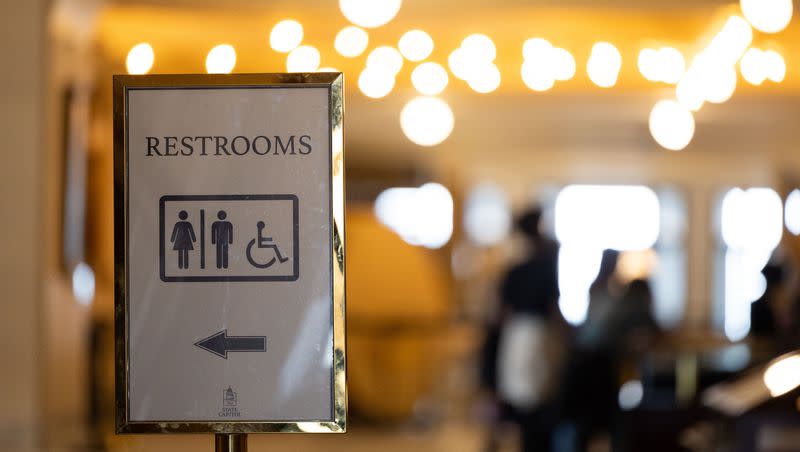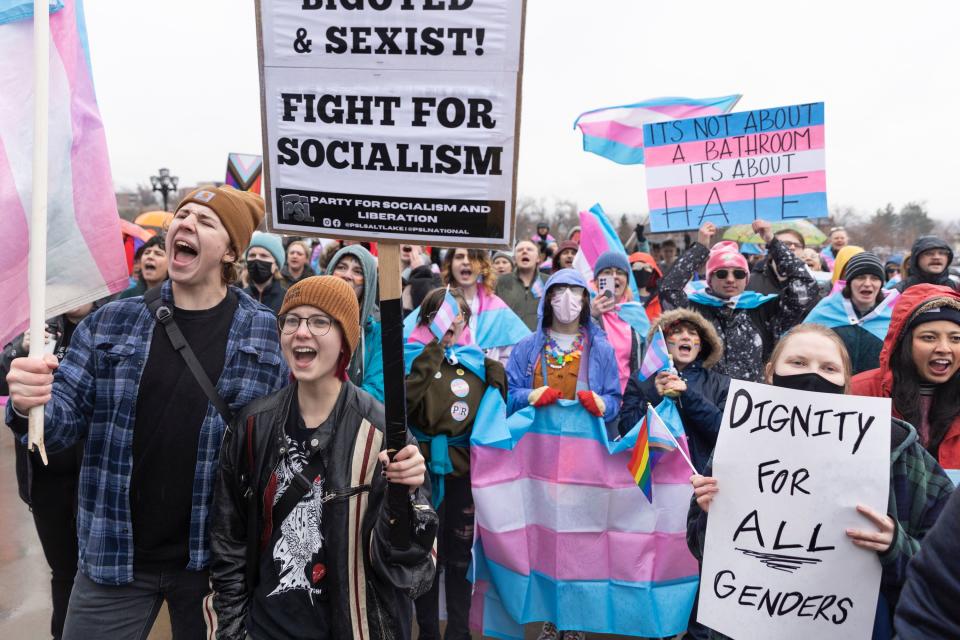Senate passes transgender bathroom restrictions with more last-minute changes

The Utah Senate approved a bathroom bill Thursday following a flurry of late changes to the policy and mixed messages from lawmakers about what the bill actually does.
After introducing significant changes to HB257 in a second substitute of the bill on Wednesday to remove language barring transgender individuals from restrooms that don't match their designated sex at birth, floor sponsor Sen. Dan McCay, R-Riverton, on Thursday introduced a new draft of the bill that defines gender-specific bathrooms to exclude transgender people — a dramatic and surprising reversal from the day before.
McCay's recent substitute reverts to previous restrictions on individuals using restrooms that don't match their sex designation in government-owned buildings, although there are no criminal penalties or enforcement mechanism for violating the bill.
The senator described his amendment as doing what the original bill intended, although "in a different way."
"Instead of making this about enforcement, we define what bathrooms are and we define who belongs in what bathroom and how to, I guess, qualify to be in one bathroom or another," he said. "And I think that definition makes it very clear."
McCay's substitute was made public only minutes before the Senate began final discussion on the bill, taking some senators and advocates by surprise. Senate leadership appeared comfortable with the second substitute during their daily press briefing on Wednesday, although answers to questions about the policy in previous days were at times confusing and appeared contradictory to what was in the bill.
The bill ultimately passed 21-8, with Sens. Daniel Thatcher, R-West Valley City, and Todd Weiler, R-Woods Cross, the only Republicans who joined with all Democrats in opposition.
HB257 has quickly moved through both chambers of the Legislature in the first two weeks of the general session. Following the changes in the Senate, the House will need to approve the bill again before sending the bill to the governor's desk.
Rep. Kera Birkeland, R-Morgan, sponsored the bill in what she described as an effort to increase privacy for women in restrooms, but opponents and LGBTQ advocates have criticized it as something that further stigmatizes the transgender community without adequately protecting restroom privacy.
McCay's second substitute exempts federal grant recipients such as domestic violence shelters and rape crisis centers, after service providers expressed concern that the bill would risk millions in federal funding by violating federal anti-discrimination laws. That language was carried over to the current version of the bill.

Here is what the current version of the bill does:
• HB257 narrowly defines both "male" and "female" in state code to exclude transgender people. Female characteristics are defined as a person's reproductive system that is "of the general type that functions in a way that could produce ova."
• The bill covers bathrooms and changing rooms in government-owned facilities, not private facilities such as malls, movie theaters or grocery stores.
• In order for a transgender person to enter any sex-designated changing room that does not align with their sex designation at birth, they must first undergo gender-related surgery and legally change the sex on their birth certificate.
• The same rule applies for sex-designated restrooms in K-12 schools.
• The bill defines men's and women's bathrooms to exclude transgender individuals, although it does not include enforcement or criminal penalties for violations unless a crime is committed.
• HB257 enhances criminal penalties for those who simultaneously commit multiple crimes in a restroom regardless of their gender. It adds an additional criminal penalty if a person commits crimes while in a bathroom of the opposite sex.
• The bill requires that future government buildings offer more unisex or single-stall restrooms and facilities.
• The proposal would codify elements of Title IX to require equal access to facilities in boys and girls high school sports.
This story will be updated.

